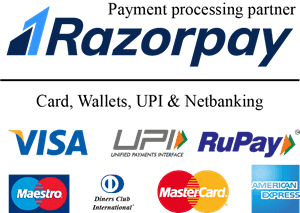“Group Discussion”, popularly labeled as GD, is a methodology used by an organization (company, institute, business school, etc.) to gauge whether the candidate has certain personality traits. GDs form an important part of the short-listing process for recruitment or admission in a company or institution. In this methodology, the group of candidates is given a topic or a situation, typically given some time to think about the same, and then asked to discuss it among themselves for a specific duration. So, a group discussion refers to a communicative situation that allows its participants to share their views and opinions with other participants. It is a systematic exchange of information, views and opinions about a topic, problem, issue or situation among the members of a group who share some common objectives.
Why is a “GD” conducted?
Organizations conduct GDs to find out whether you possess the critical qualities/skills to contribute effectively to the goal accomplishment process. Group Discussions are held because business management is essentially a group activity and working with groups is the most important parameter of being successful as a manager. Apart from that, the candidates are evaluated on the basis of their communication skills, knowledge, leadership skills, listening skills, conceptualizing ability, etc.
Some important point to be remembered during GD
By beginning a Group Discussion, you not only seize an opportunity to speak but also you grab everybody’s attention.
By starting a GD, you will get maximum uninterrupted time to present your views and skills to the examiner as other participants are still busy in understanding the topic.
Try to make an impression through your content and communication skills while beginning a GD.
While initiating a Group Discussion, you should not stammer or quote wrong facts.
You should start a GD only if you have properly understood the topic and have some knowledge about it.
Try to give the right direction to a GD by giving logical points.
If you are starting a GD, you must cover all the relevant points and present them clearly.
Start a GD by giving a quote, definition, question, facts, figures and statistics, shocking statement, short story or general statement.
Do not take much time after beginning a GD as it will give an impression that you started a GD for sake of just starting it.
The most important point to focus on while starting a GD is that you should not quickly conclude the GD at one go but give a space for discussion to solve the problem.
Things to remember while starting a GD:
1. Language:
Having good communication skills is one of the most important facts to win a GD. It would always help you gain points in the beginning of the GD to articulate each word with precision. You must be aware of the choice of words you’re going to utter as it might tickle a sensitive or hurtful thing. You need not be fancy or flowery with your words as long as you are able to express your views clearly.
2. Voice:
Voice modulation is and always be the decisive key to lead a GD. You must know when to speak, pause and continue proving your points. You must watch out your intonation and pronunciation while speaking as the panel of judges takes this into account.
3. Concept:
Your concept must be clear and must know the loopholes in the discussions and arguments. You must analyse the topics, its content, the argument and the direction where the discussion is heading to.
Positive Task Roles in a GD:
Initiator – Starting a GD, giving definitions and suggesting and introducing new ideas.
Information seeker – In a GD, gather and solicit information from others.
Information giver – During GD share information and facts.
Procedure facilitator – Lead a GD by keeping track of the discussion.
Opinion seeker – Ask other participants of a GD for their opinion.
Opinion giver – Give your opinion in a GD on the statement given by the other participant.
Clarifier – Clarifying all the ideas and opinions discussed during a GD.
Social Supporter – Giving support to ideas of all participants of a GD.
Tension Reliever – Presenting and discussing the problem from a broad perspective.
Energizer – Encouraging other participants to explore some new ideas during a GD.
Compromiser – Creating harmony between different opinions by giving a compromising solution.
Gatekeeper – Involving other participants in the GD by asking for their opinion
Summarizer – Summarising or concluding a GD by including all important points discussed during a GD.
Negative Task Roles in a GD:
Disgruntled non-participant – Someone who doesn’t contribute to the GD.
Attacker – Someone who aggressively disapproves opinion of other participants of a GD.
Dominator – Someone who takes control of the discussion and not letting others speak in a GD.
Clown – Someone who does not take GD seriously and disrupts it through inappropriate humour.
The Personal Interview, PI is the last door that you have to open to enter a Business School of your choice. Despite months of preparation, no one can predict the pattern and structure of a personal interview. There are a few commonly asked questions in the personal interview by top MBA colleges.
It’s not expected of you to know the answer to every question that you face in a personal interview, but you can prepare some of the commonly asked questions in an interview. The interview panel of the MBA College which you’ve applied for is aware of the fact that you are a student and are not expected to know everything. So, be honest when you’re in the interview room. The personal interview is conducted to assess your interpersonal & communication skills and to know your vision as an MBA aspirant.
Commonly asked questions
I. Personal
A.Background
1. Tell me about yourself.
2. What would you like me to know about you that is not on your resume?
3. What are the three most important events of your life?
4. What was an experience in your life that you would want to go back and change?
B. Self Description
1. How would your friends describe you?
2. Give me three words to describe yourself.
C. Goals
1. What new goals have you established for yourself recently?
2. What are your five to ten year career goals?
3. What are the attributes of an ideal job for you? If you could do it allover again, what would you do differently?
D. Values
4. What does success mean to you?
5. What does failure mean to you?
6. Which is more important to you: money or the type of job?
7. Who do you admire? Why?
II. Management / Leadership Style
1. Define leadership.
2. Tell me about a time when you successfully resolved a conflict.
3. Give me an example of a leadership role you have held when not everything went as planned.
4. What two attributes are most important in your job?
5. How do you feel about working overtime?
III. Strengths / Weaknesses and Skills
1. What are your strengths/ weakness?
2. Give me an example of something that you have done that shows initiative.
3. What makes you stand out among your fellow students?
4. Have you ever had any failures? What did you learn from them?
5. How do you feel about working in a structured environment?
6. In what kind of work environment do you do your best work?
7. What kinds of tasks and responsibilities motivate you the most?
IV. Education
1. Why did you decide to get an MBA?
2. Why IIMA? (Or whichever institute you are being interviewed in.)
3. What made you decide to major in ?
4. What electives have you taken? Which did you enjoy the most?
5. What college classes did you like the least? Why?
V. Extra Curriculars
1. What extra-curricular school activities are you involved in?
2. What have you learned from your activities?
3. What is your favorite book/movie/song/painting or author/actor/singer/artist?
4. Which magazines/newspapers do you read regularly? Which books have you read recently?
VI. Job / Company / Industry
1. What do you know about your company?
2. What do you predict is going to happen in this industry in the next 5 years?
3. Do you know who your competitors are?
4. What interests you most about this position? What parts of the job do you think you would find the least satisfying?
5. What concerns you about your company?














